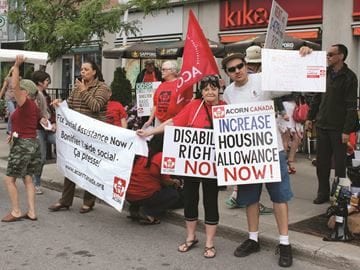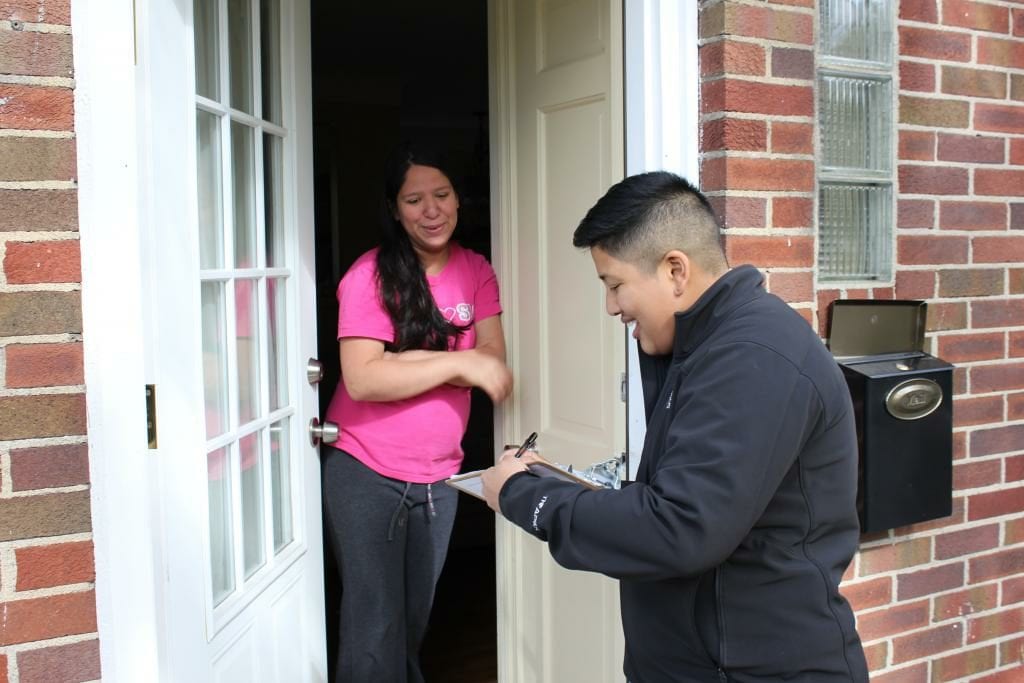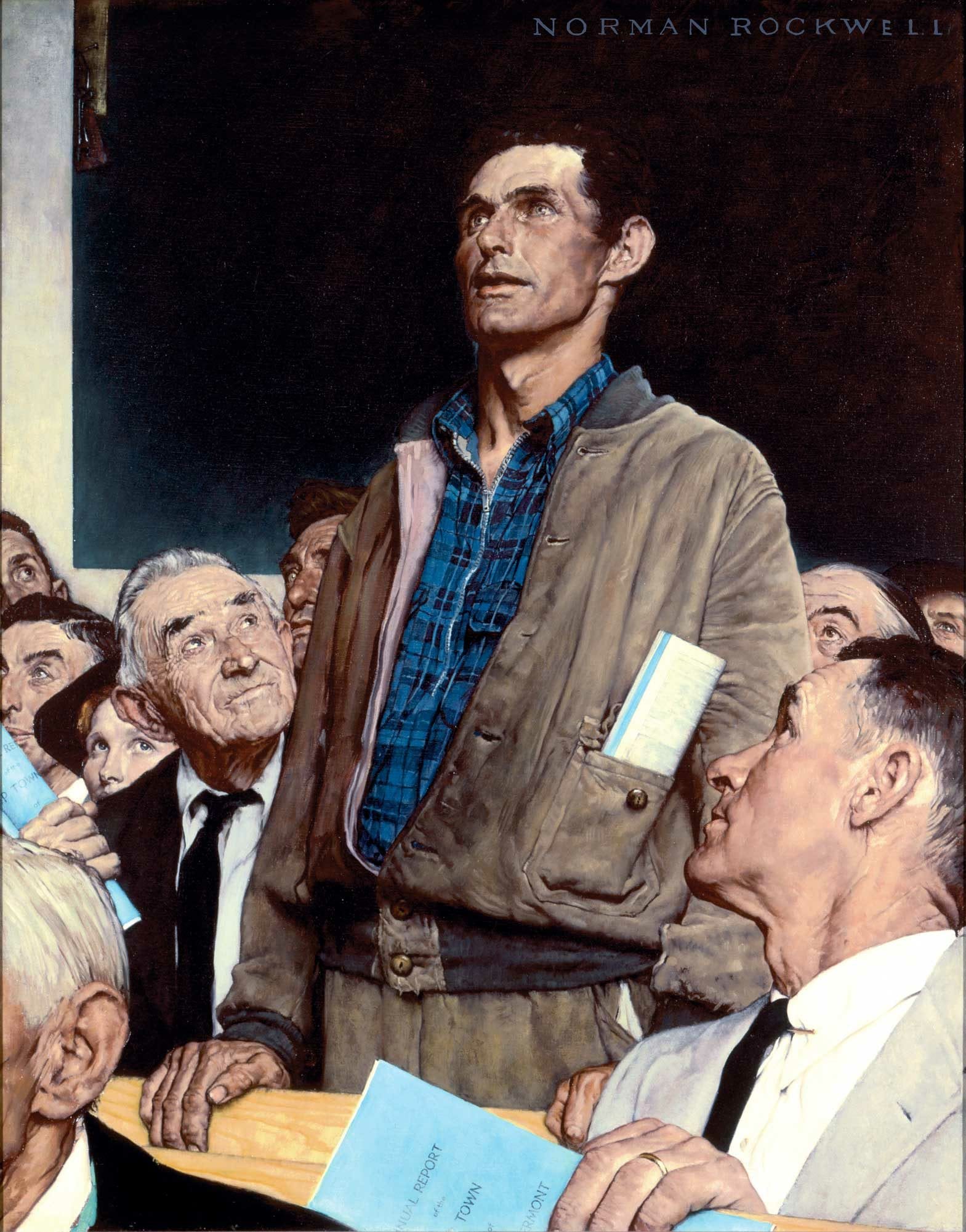I hardly ever respond to anything in writing if I am not remembering it at least a year or so later. The piece I am remembering is an episode of the podcast Freakonomics called “Is The World Ready for A Guaranteed Basic Income?” I recommend it as an introduction.
I am going to give you a quote and then I want you to keep reading.
Sam Altman runs Y Combinator, a technology venture capitalist firm that has had some great successes and is now interested in funding social science research that will include basic income. Here is the quote, which came up during his interview in this podcast episode:

We are back to the couch potato. This character appears in a lot of objections to basic income. Altman concedes that there will be couch potatoes. He just thinks that is a good price to pay to get more entrepreneurs, even only a few of them. I appealed earlier for the reader to keep going because most people in my orbit would not like this quote. (If it sounds good to you, then I guess I should still urge you to keep reading.) I will explain why some will push back and why I ultimately do not.
We are starting to see increased support for as well as new sorts of negative reactions to the idea. Not very long ago, basic income advocates were often introducing the idea to specific audiences. This meant one could get away with starting where you thought the listener would react best. If you were talking to someone on the left, you might call it a “strike fund for all”. If someone is more liberal, you would emphasize that a basic income reaches people that welfare is supposed to help. With libertarian types, you start with the efficiency and non-bureaucratic character of a basic income. I have been very impressed by recent writing that emphasizes basic income’s ability to remedy asset inequality for people of color and women.
Now, I am very pleased to see more people who have already heard about basic income from someone. Sometimes they caught the wrong person for them. As we explain basic income, we will need to separate the policy (giving everyone an unconditional cash grant) from the project (which can range from left to right).
A quote like Altman’s can swing a listener in different directions. I know this from my social media work. I imagine people running different movies in their head. Some hear “new products and services and new wealth” and visualize start-ups and think it all sounds great. Others try to imagine a world working well with 90 percent of people not doing anything anyone else wants them to do and they just can’t see that working out well. Others hear this and worry that basic income is part of a larger scheme to organize our lives around Silicon Valley capitalists. To them, Altman seems to overly glorify the tech entrepreneur. Other writers are more desperate in labeling basic income a “neo-liberal plot”, which would make you laugh if you went to one of our Congresses. We would not want to merely swap one set of capitalists for another.
I have not met Sam Altman. His other statements show that he also finds basic income interesting because it directly answers a moral mandate to make sure people are clothed, fed, and sheltered. I highly recommend the rest of the podcast. My objective here is to explain why I think we ought to look at this quote charitably. I will show in what way I think his quote is true. I also want to propose an alteration that makes it much more palatable for those I see reacting negatively.
No One is Saying Ninety Percent of Society Will Hit the Couch
Altman is not talking about a whole society in which only 10 percent work. He is saying that even if we lose some work-time to lame leisure (pot and video games), we will make it back even if only 10 percent start up new enterprises. Nor is he saying that he knows that we will get one successful start-up for every nine lives lost to the coach. He is only saying that losing nine to the couch would be an acceptable price to pay if we gain a start-up, which would offer something someone wants and would also be offering jobs. This is very plausible.
Most people with a basic income will live a lot like they do now. They will have a more stable income. They will worry less about many of their friends and family. They will have a plan if they need to train for a job or pay bills between jobs. This cuts into the number of people who would choose the couch. Work can be a place where we get recognized for our talents and for our cooperativeness. And jobs pay money. In fact, you can still count on a basic income if you take on a job. And you can count on it if you change your mind.

The problem now is that employees have very few options when workplaces go sour. Basic income creates one option (work for no one) and enables people to survive while they search for and train for other options. This will increase pressure on workplaces to improve.
I used to be suspicious of most rhetoric surrounding markets. I think that was because so much of it ended up with a conclusion like “Therefore, government should do less/nothing.” I have come to value markets more and more. Now, I want them for everyone. A basic income secures the capability to participate in markets for everyone. There are many sections of the United States that get very little government or market attention. That would be less likely with a basic income in effect. You will also see more start-ups under a UBI because failing doesn’t risk losing everything. Most entrepreneurs now come from the upper one percent of our society. Whole communities aren’t going to see much startup soon if we wait for the elite to try to make money there.
Add Caregivers and Organizers To The Mix
Someone organizing a non-profit, a political organization, or even an informal social scheme fits under Sam Altman’s phrase of “new products and services and new wealth.” He is not confining his hopes to technological startups.
Robert Putnam’s book Bowling Alone, written in 2000, lays out the loss of social networks and the harm that has caused most Americans. These can be voluntary associations, political clubs, fraternal organizations, or sports leagues. Participation has declined as work-hours per household has increased. This means that many will look for alternative ways to interact with like minded Americans, especially when it comes to sporting events.
There is a strong link between organizational affiliation and many different metrics for happiness or meaningfulness. We also see more affiliation in communities that have more political power and that generate more market activity. (There is likely a causal loop there. Lack of power and lack of market options may often precede losses in organizational depth. And a lack of organizational depth may well often precede losses in money and power.) Social-capital comes hand in hand with capital-capital.

Michael Lewis and Eri Noguchi apply Putnam’s work, and combine it with survey data, to give us strong reasons to think that we would see improvements in civic networks as well. Declines in civic participations can be shown to coincide with an increase in work hours. People who value civic participation will have an option to do so.
If you want to know how a basic income will benefit society, let’s make it clear that we are including “organizers” within our understanding of “entrepreneur”. Our culture is one that has to be reminded of this. Once we expand our understanding, we can look around and see how many people are trying to participate in institutions that organize in pursuit of truth, justice, and beauty.
Examples will help here: church committees, symphony boards, rotary clubs, sports leagues, poetry circles, craft guilds, environmental organizations, identity-based youth groups, identity-based cultural organizations, music bands, theater companies, unions, political organizations, lobbying organizations, etc. This list could go on a very long time.
At this point, I want to share a little bit of what I learned as a community organizer in Arkansas for ACORN. Organizing is difficult. There are many ways in which it is not like entrepreneurship at all. You aren’t selling anything. All organizations have trouble finding this skill set. It is also difficult to get the resources together for full-time organizing. We would often hire someone who loved the mission of the organization but had to leave for pretty small increases in money. It might also prevent the loss of organizers to the for-profit sector.

Please note: I have noticed that a large section of the US internet is trying to malign the very term “community organizer” but my argument includes organization of groups I disagree with.
The ratio of organizers to members goes beyond the one to nine ratio that Altman imagines. About six of us at Arkansas ACORN served around 5,000 households if you are only counting dues payers. The community that responded to our work was larger than that. There were meetings every month. People debated goals and tactics. Political leaders were interviewed or protested. Organizations that despised us did the same things, though often with more funding from fewer people.

Every time I hear the term “couch potato” brought up as some sort of nightmare case for basic income, I remember that I sat on thousands of couches, urging people to get active, to get involved with their community’s decisions. I know that with a basic income, we would have had more organizers and more active members. Rival organizations would have had the same benefit. We will live in a more democratic place.
I am still involved in political work, even though I am not employed to do it. I also have been published as a poet and as a photographer, though not paid. You will find a lot of people working on magazines, readings, and websites in which the true, the good, and the beautiful are debated. A lot of people can see how to raise some money doing cultural, social, or political work but they can’t get to a decent level. A basic income would generate audiences for artists, philosophers, preachers-good and bad. A thriving art world is full of disputed art. A thriving philosophical culture will have disputed philosophical projects. We will live in a more interesting place.

Norman Rockwell “Freedom of Speech”
Finally, we should look at the decision to care for a family like we would a “start-up”. The “caregiver” has started a “career” that works for many people like a vocation. For each caregiver, there is at least one other person, usually more, benefiting in a meaningful way. Economists often do not count care for children and elders unless someone is formally paid to do it. A basic income would enable people to say no to employment if someone they love needs them. We will live in a more caring place.
In fact, Robert Putnam shows us in his research, as do Michael Lewis and Eri Noguchi in theirs, that the “stay-at-home” mom was often a civic association organizer as well.
More markets, more culture, more democracy, more care. This looks to be well worth investing 3% of our GDP and letting a few people stay home.
When I read the comments and notes that come with all basic income articles, I can see that some people would worry about people not working because of basic income. Basic Income enables people not to work. Kate McFarland points out that a basic income enables people to say no to all social useful activity. But we are far away from that. Some people will live incorrectly. Many people live incorrectly now. Basic income is a good bet for increasing socially useful work.
- More entrepreneurs means more people are offered employment.
- More organizers mean more people are being invited to venues where what is true, what is good, and what is beautiful are debated and plans are made.
- More caregivers mean more people are taken care of.
Therefore, most likely, for every couch potato, we will have better reasons than ever to get off the couch.
About the author:
Jason Burke Murphy teaches philosophy and ethics at Elms College in Western Massachusetts. He serves on the board of US Basic Income Guarantee Network and recently presented at their North American Congress. He helps with social media for US Basic Income Guarantee Network. He has written before for Basic Income News. His most read piece so far is “Basic Income as Proposal, as Project, and as Idea.”



The couch potato discussion seems never to consider the point of view of the employer. Who wants to employ a couch potato? No employer has a duty to. One must accept that there exist the idle and inept. Isn’t it one of the (perhaps less evident) benefits of a Basic Income that incorrigible couch potatoes may be permitted their dignity (as such) while the rest of us get on with our productive lives free of the urge to forever rage about them?